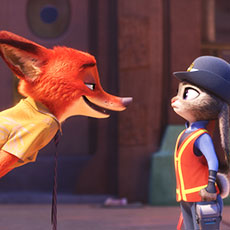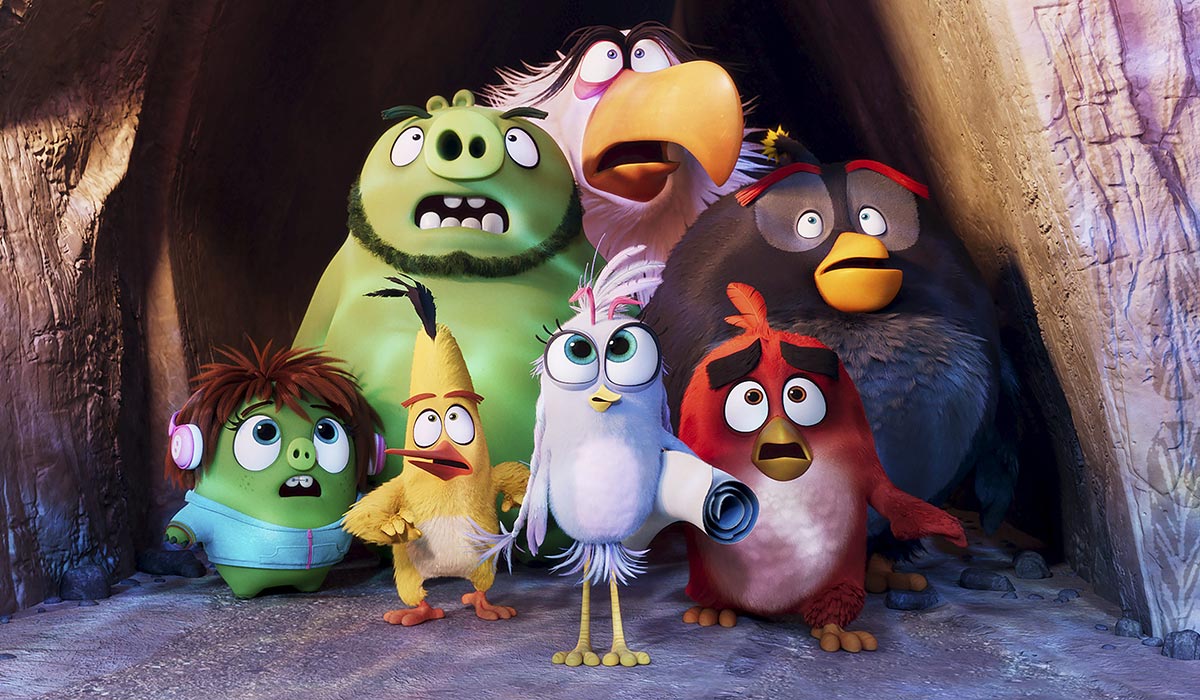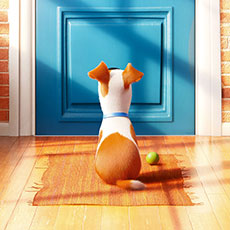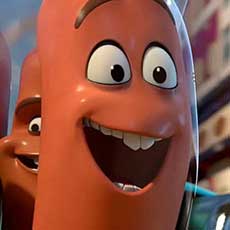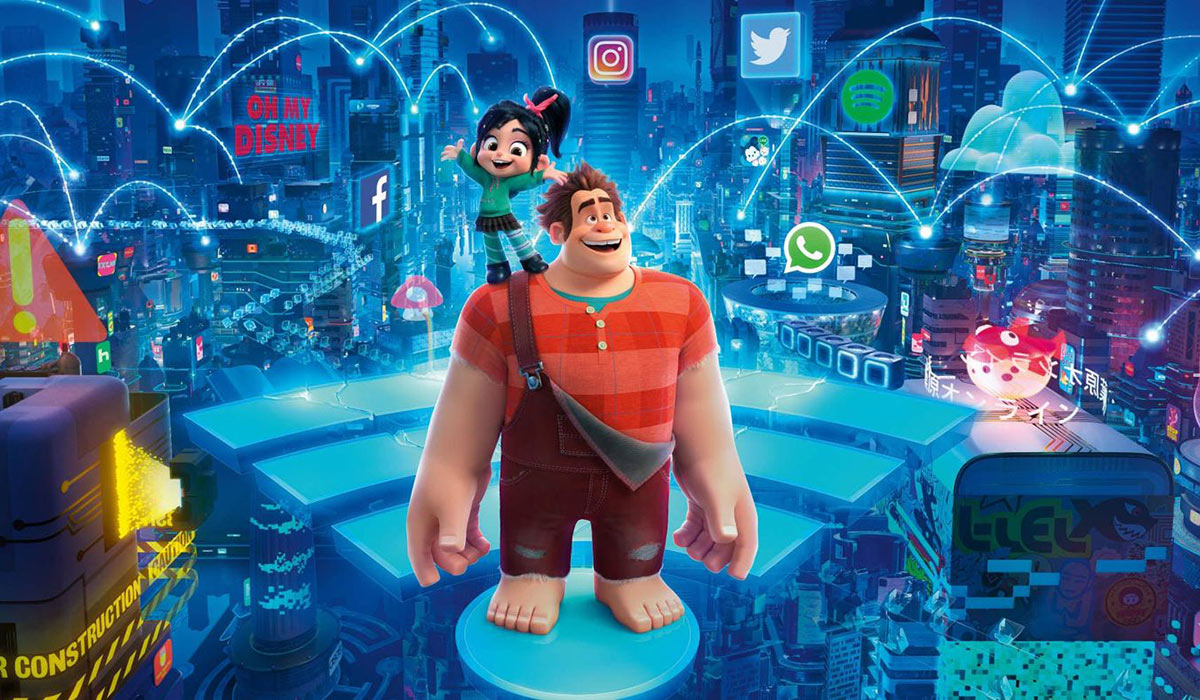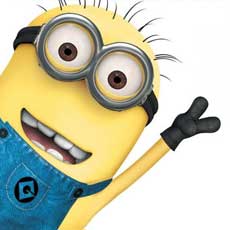Judy Hopps is a small bunny who dreams of moving to the big city and becoming the first rabbit cop. After working hard and overcoming the surprisingly large number of people who want to bring her down, she finally makes it. But even among the police she has to continue to prove her self. She gets that chance when animals start disappearing all over the city. Her only clue? A con artist fox named Nick who may have seen something, but isn’t inclined to help.
First we need to acknowledge the elephant in the room (and I don’t mean Francine). Zootopia is a “message movie”. Sure lots of films have a moral, but that doesn’t make them message movies. I define a message movie as a film where the moral is the central point of the thing. Other considerations like being entertaining or making a good film come second. That doesn’t mean a message movie can’t be entertaining or good. It just means that while you are watching it you are always aware that you are being propagandized.
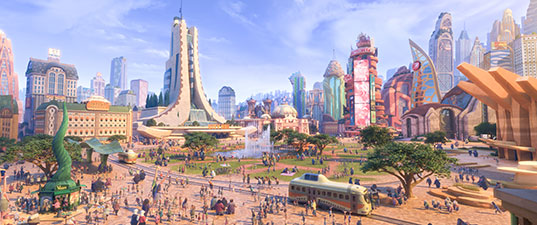 Personally I am not a fan of most message movies. Going to the theatres these days is an expensive proposition, and I want to be entertained and taken out of the sometimes dull, sometimes scary real world for a couple of hours. If I want to be preached to about an issue or a cause I’ll turn on the news or go to a political rally.
Personally I am not a fan of most message movies. Going to the theatres these days is an expensive proposition, and I want to be entertained and taken out of the sometimes dull, sometimes scary real world for a couple of hours. If I want to be preached to about an issue or a cause I’ll turn on the news or go to a political rally.
Understand, there’s nothing wrong with a film that has principles it stands for or a moral center it sticks to. Movies like The Incredibles or Wall-E might speak to you about certain ideals — but the difference between them and a message movie is they don’t literally speak to you about it. The storytellers get across the point without repeatedly beating you over the head with a protest sign. And more importantly, those movies weren’t made to spread a message, they were made for the sake of the art. Any moral to be found in them is in service to the story they wanted to tell — unlike here where the story is in service to and is secondary to the moral.
So, Zootopia is a “message movie”. From the first few minutes the message that “bigotry, prejudice, and stereotypes are bad” is drilled into the audience in the most unsubtle ways imaginable. “What’s wrong with that” you may ask? “Bigotry, prejudice, and stereotypes are bad, so why would you complain about that unless you are a bigot?” Think of it this way: eating your vegetables is good for you, no question. But do you want to watch a two hour film where they explicitly remind you of that every few minutes? Would Ratatouille have been even better with that kind of healthy message added to the script as much as possible? No? What, do you want people to be fat and unhealthy? Of course not. And the same applies to Zootopia. You can agree with the message but still think it was clumsily done.
If that wasn’t bad enough, Zootopia is a message movie that doesn’t even follow its own advice. As much as we as an audience are implored to eschew stereotypes, the writers use them throughout the film as jokes. Sloths are slow so they run the DMV. Wolves can be distracted because they all like to howl. A character with the last name Hopps is a bunny. Weasels are weaselly and foxes are sly. One particular stereotype seemed to be especially egregious considering the overall message. Near the beginning of the film there is an stupid, over-the-top bigoted, hateful bully who has a southern/hillbilly type accent. Because, as we all know, southerners are all stupid racist bigots in real life, amirite? So, as grating as the message becomes after repeatedly being crammed down our throats, it’s even more galling when you realize how the writers are subverting the message when it suits their purposes.
Let’s put aside the “message” part of the film now and move on to the secondary parts of the movie: story, characters, animation, music, and everything else! The good news is almost all of those components are very well done. The bad news is the one that isn’t well done is maybe the most important one, story.
Stripping out the message, the plot of Zootopia has potential. However, it suffers from a lack of being fleshed out. The biggest disappointment in this regard is with Zootopia itself. The city is introduced early on and it is amazing. Different boroughs for the different climates the diverse group of animals inhabit are shown, promising a story that will take us through many different kinds of settings — but in the end we mainly stay inside buildings or in the downtown area for most of the film.
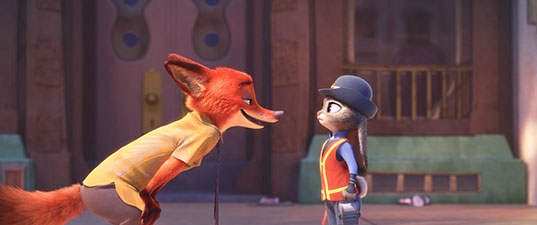 Another intentionally left unexplored aspect of the film’s plot device is what exactly the animals do for food in this evolved society. We see fruits and veggies and desserts. But what do the carnivores eat now? This feels like a major hole that the writers didn’t want to write themselves out of, but one I was expecting to hear an answer to since the predator/prey relationship is so central to the plot.
Another intentionally left unexplored aspect of the film’s plot device is what exactly the animals do for food in this evolved society. We see fruits and veggies and desserts. But what do the carnivores eat now? This feels like a major hole that the writers didn’t want to write themselves out of, but one I was expecting to hear an answer to since the predator/prey relationship is so central to the plot.
Worse than those issues for me was the episodic nature of the main narrative. As a story dealing with a police investigation, we’re obviously going to have to follow the clues. But none of it feels natural or organic. It quite literally feels like each clue is a self-contained mini-story with its own characters driving the mini-plot — none of whom will matter once we move on to the next clue. We visit a yak, get a funny few minutes exploring his club, get the next clue, and move on. That leads to a sloth, get a funny few minutes exploring his work, get the next clue, and move on. And so on!
A huge problem for the film — it just wasn’t that funny. I saw it in a audience full of loud children. Usually they are a good validation of whether I am right in my judgment of a film’s enjoyment factor. Here there were long segments with absolutely no laughter from the target crowd. Half way through the film the lack of laughter was almost deafening once I noticed it. That’s not to say there aren’t some funny scenes. They are just few and too far between.
I don’t like spoilers in my reviews so I’m not going to outright describe this last complaint — but savvy fans of recent Disney movies will know exactly what I’m talking about so be warned! Zootopia, like Wreck-It Ralph, Frozen, and Big Hero 6 before it, features a bit of a twist that is becoming too easy to see coming from overuse.
All that said, there are some praise worthy aspects, starting with the animation which was top-notch in all respects: fun character designs (including each character’s associated movements), an incredible and inventive world, and a colorful and unique look and feel.
The voice acting in the film could not have been more perfect. Ginnifer Goodwin as Judy Hopps and Jason Bateman as Nick Wilde highlight a stellar cast. Both created memorable characters that will be popular parts of the Disney canon for a long time. Idris Elba as the police chief was a stand-out deserving extra praise for his performance. The rest of the actors didn’t get as much screen time for their roles, but I can’t think of one that wasn’t spot-on.
Michael Giacchino and Shakira are two of my favorite musicians in their respective fields. Both do good jobs here, but not in context! Giacchino’s score and Shakira’s song are great to listen to at home. But the score got lost in the film and is all but unmemorable there. And Shakira’s song felt shoe-horned in so they could have the obligatory dance off at the end of the film.
When all is said and done a movie needs a purpose, a reason to be created. Art for art’s sake, to make money, or to promote a message are all popular justifications. And, honestly speaking, it’s usually a mix. Message movies have to walk a fine line. You have to do the main job of a movie — entertain. And you need to get your message across without insulting your audience. Zootopia is not as entertaining as it needs to be, and is hypocritical with it’s already heavy-handed message. Even with everything else done right, failing on those two most important points warrants a savage review.
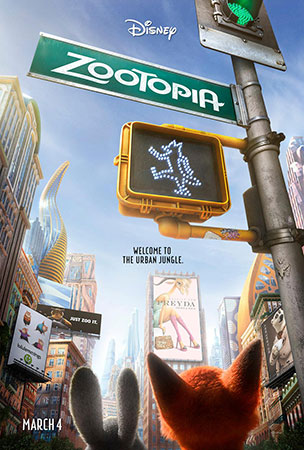 | Zootopia Disney March 4, 2016 108 minutes Rated PG directed by Byron Howard and Rich Moore | |


